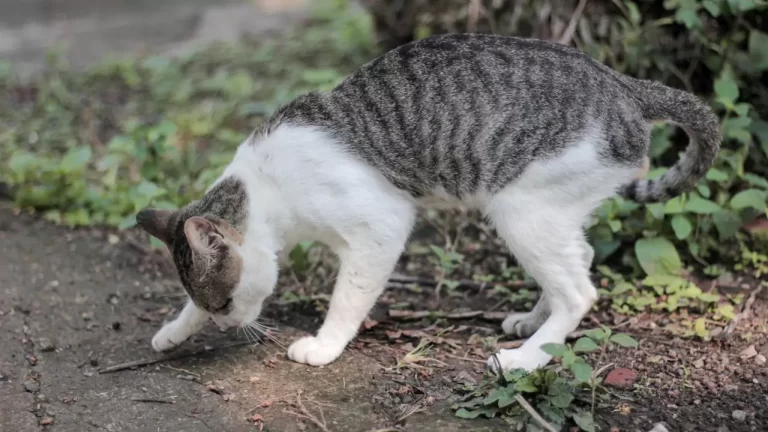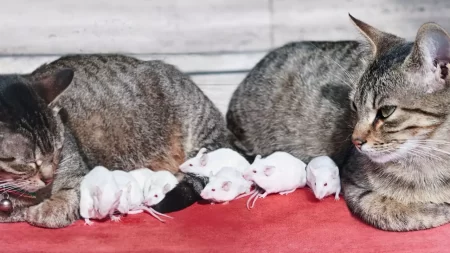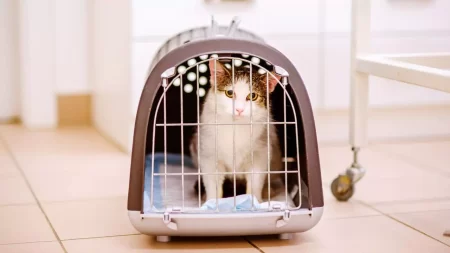Yes, cat poop can potentially be harmful to humans if proper precautions are not taken. The feces of cats infected with toxoplasmosis contain the parasite Toxoplasma gondii, which can infect humans and pose health risks if ingested.
However, the risks can be minimized by following basic hygiene practices.
What is Toxoplasmosis and its Effects on Humans?
Toxoplasmosis is a disease caused by the Toxoplasma gondii parasite. Cats are the definitive host for T. gondii, meaning the parasite can sexually reproduce only within cats.
Transmission of Toxoplasmosis from cat feces
Humans can get infected with toxoplasmosis primarily through ingestion of the parasite from contaminated:
- Cat feces, if cat litter is changed and hands are not properly washed.
- Fruits, vegetables, and water contaminated with infected cat feces.
- Undercooked infected meat.
Once ingested, the parasite penetrates the intestinal wall and spreads through the body.
Symptoms and Risks Associated with Toxoplasmosis
In most healthy adults, toxoplasmosis infection causes no symptoms. However, dormant non-replicating parasites may remain in tissues and reactivate later.
In immuno-compromised individuals and pregnant women, toxoplasmosis can lead to:
- Fever, swollen lymph nodes, muscle aches, headache.
- Congenital toxoplasmosis in newborns causes neurological and visual damage.
- Encephalitis and neurologic diseases if the infection spreads to the brain.
So while toxoplasmosis infection generally does not cause serious illness in healthy adults, it can have severe consequences in high-risk groups.
Preventive Measures for Toxoplasmosis
Toxoplasmosis can be prevented by taking simple precautions:
Proper handling and disposal of cat feces
- Change cat litter daily, preferably using non-clay, biodegradable litters.
- Wash hands thoroughly with soap and warm water after changing litter.
- Use gloves while gardening in areas cats have access to.
- Double bag and securely tie cat feces before disposal in the trash.
Avoiding contact with potentially contaminated soil or water
- Wash hands after gardening or handling soil.
- Wash fruits and vegetables thoroughly.
- Avoid drinking untreated water.
- Cook meat thoroughly to temperatures above 160°F.
By handling cat feces carefully and maintaining good hygiene, the risk of toxoplasmosis transmission can be greatly reduced.
Myths and Facts About Cat Poop and Human Health
There are some common misconceptions regarding the health hazards posed by cat feces:
Dispelling Common Misconceptions
- Myth: Indoor cats don’t pose a toxoplasmosis threat.
Fact: Indoor cats can get infected if fed raw meat or have access to Outdoor insects like cockroaches. Their feces can still transmit toxoplasmosis.
- Myth: Cat feces are more hazardous than other animals.
Fact: Feces of an infected animal, including pigs, sheep, and dogs, can transmit toxoplasmosis. However, cats are the only definitive host.
- Myth: Only immunocompromised people are at risk.
Fact: While the risks are higher, toxoplasmosis can affect healthy adults too, especially through congenital transmission to unborn children.
Understanding the Actual Risks and Precautions
- Cat ownership does not need to be avoided altogether. With proper precautions, cats can be safely kept as pets.
- Pregnant women do not need to give away their cats. Just avoid changing litter and clean any accidents thoroughly.
- The parasite cannot become airborne. Transmission requires direct ingestion of infected feces. Basic hygiene practices are sufficient for prevention.
So while cat poop poses a valid toxoplasmosis hazard if consumed or contacted without precautions, the risks can be easily managed with proper handling.
In summary, cat feces should always be considered potentially infectious, and basic hygienic practices can effectively prevent toxoplasmosis transmission to humans. However, cats themselves do not need to be perceived as a serious health threat if simple precautions are routinely implemented.







